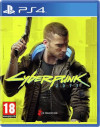Observer
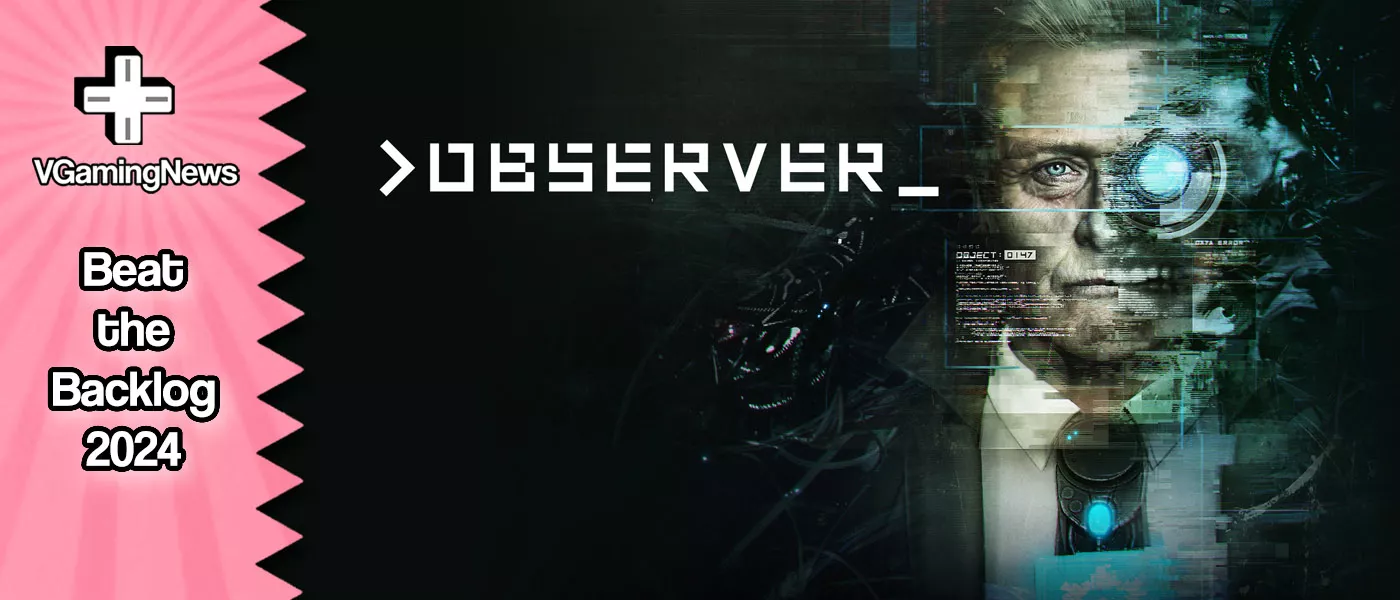
Drew has pledged to slowly but slowly churn his way through his sizeable stack of Nintendo Switch games for his ‘Beat the Backlog’ feature. Check out his main article to see what games he’s completed already!
I’m of the opinion that cyberpunk is one of the coolest settings in all of fiction and I won’t hear any different. Its worlds are always packed full of conflicting ideas: impoverished, smog-covered hive cities punctuated with towering neon billboards for super rich corporations; advanced cybernetics technology scattered through a world running on floppy disks, flip phones, and CRT TVs. Man and machine; rich and poor – these complex dichotomies offer incredible scope for nuanced characters and layered storytelling. It’s hardly a surprise then that cyberpunk-noir, Observer, starring Blade Runner’s very own Rutger Hauer caught my attention.
Observer is set in Krakow in the year 2084. Cybernetic implants once rose in popularity to become commonplace, before a ‘digital plague’ known as the nanophage took hold of the populace, killing in incredible numbers. The survivors were then engulfed in a war between East and West, and many of the remnants fell into patterns of drug dependency and tech addiction. Amidst the chaos, the megacorporation, Chiron, took control of Poland and founded the Fifth Polish Republic, installing an oppressive regime that rules with classism, espionage and fear. Enter: Daniel Lazarski, our protagonist, who is voiced by and likened after the late-Rutger Hauer (Ladyhawke, 1985, and Blade Runner, 1989). Lazarski is an Observer – a cyber-enhanced police officer who can interrogate his suspects by hardwiring himself into their neural net and rummaging around in their memories.
At A Glance
| OBSERVER | |
| Date Added to Backlog | 29/12/2021 |
| Price Paid | £5.39 (£2.55 after Nintendo Gold Points discount) |
| Positives | + Tremendous cyberpunk world + Soundtrack that is equal parts haunting and traumatising + Impressive visual effects |
| Negatives | – Feels horribly sluggish – Actual gameplay incredibly limited – Chase scenes are repetitive and tedious |
| Recommendation | 5 /10 |
| Played On | Nintendo Switch |
| Also Available On | PC, PS5, PS4, Xbox Series X|S, Xbox One |
| Find out about our scoring policy here. | |
| Want to see the whole of Drew’s Switch backlog? Check it out here and suggest something to play over on our socials! | |
After an impressive introductory monologue and Seven-esque (1995) opening scene, we’re introduced to Lazarski and the crux of the plot. Whilst talking to dispatch, Lazarski’s comms are hijacked by his estranged son, Adam, who briefly laments their broken relationship and offers his father a warning to remember that he is “not in control”. Running a caller ID program through his onboard computer, “Matriarch” (a nice nod to Alien – 1979), he pinpoints the address of a building in a rundown area of the city. Unsure just what his son could be doing in a Class C tenement in ‘The Stacks’, Lazarski sets out to track Adam down, hoping to reestablish the bond with his only son.
Upon his arrival, Lazarski is met by the buildings’ janitor, Janus, a war veteran who can only be described as a juddering, mostly-cybernetic shell of a man. The detective makes his way to Adam’s apartment and is met by a grisly scene – a decapitated body whose head is missing – and Lazarski immediately fears he could have stumbled on the remains of his son. The Observer reports the death and opens a crime scene, causing Chiron to lock down the building, and then he begins a twisting investigation through the tenement building, the memories of various victims, and even his own psyche.
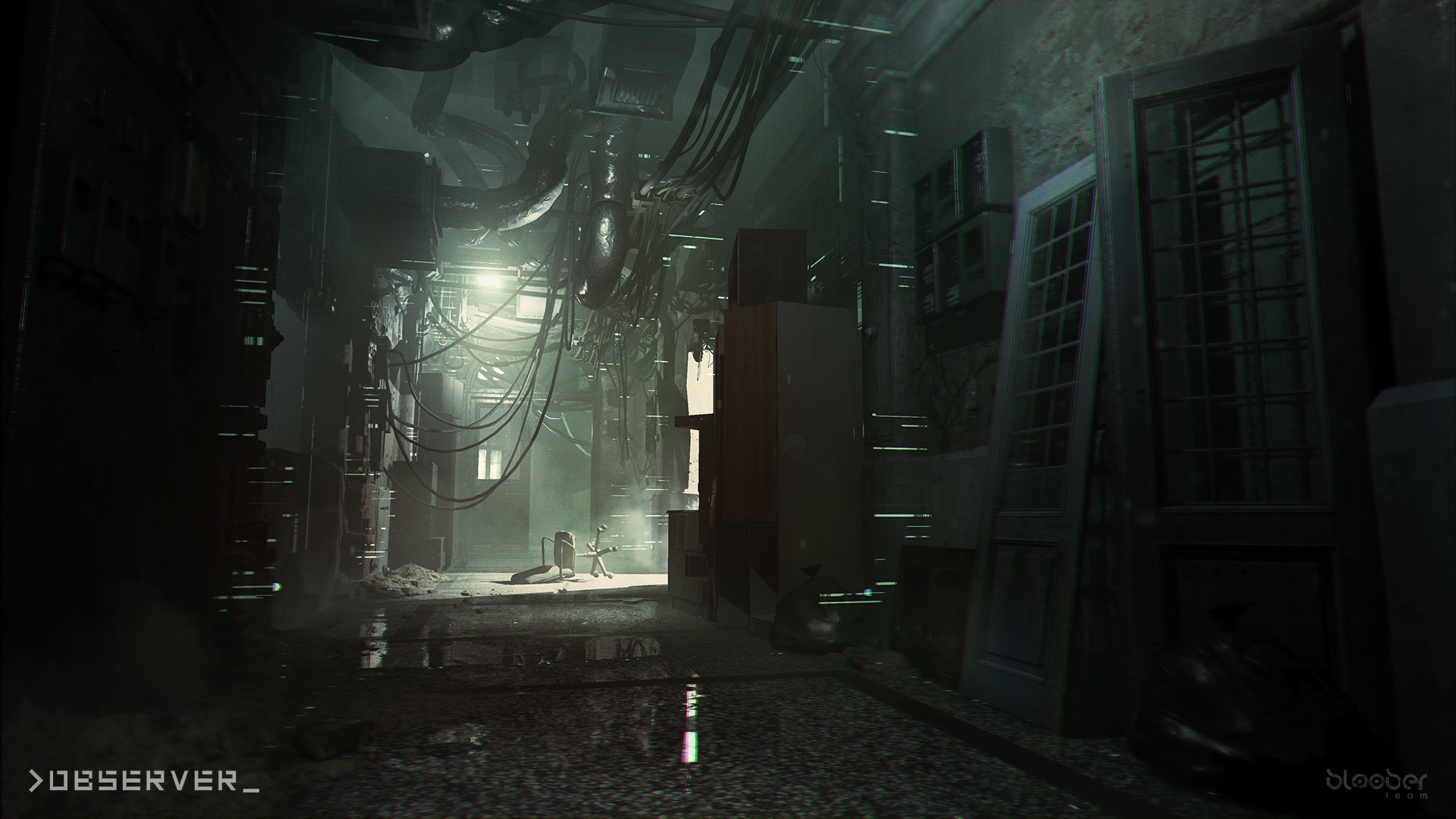
Moving your way through the opening scenes of the game, first impressions are decidedly mixed. The visuals, an often maligned area of Nintendo Switch games, look tremendous, in both handheld and docked modes. Looking around at the environments, your eyes aren’t so treated to a feast, as offered a gluttony of filth and decay. There isn’t an inch of the game that isn’t caked in gunge, grime and rust – absolutely everything exists in a state of disrepair: it’s smashed, broken and covered in a thick layer of filth. Flickering CRT TVs show snapshots of real life that stand in stark contrast to the polished and glowing advertisements for Chiron’s products and services. Bloober Team has masterfully captured the essence of dystopian cyberpunk in their environments and deserves an incredible amount of credit for bringing such a bleak and oppressive world to life so well.
Decidedly less impressive though, are the controls, which feel laborious and extremely heavy. Moving Lazarski around feels like driving a tank – it takes you almost a full second of pushing the control stick forward before you feel the Observer lurch into action, and when coming to a stop, you can almost feel the camera juddering as if mounted on some gargantuan machine that’s come to a screeching halt. Looking around isn’t much better – despite thankfully being given the option to amend the sensitivity, there’s only so far you can push things, as some of the interaction boxes are so small that you run the risk of overshooting everything if you turn it up too high. To add insult to injury, not only is getting around incredibly sluggish, but the button layout itself feels archaic, with few actions assigned where you might expect them, and no, you can’t remap anything either.
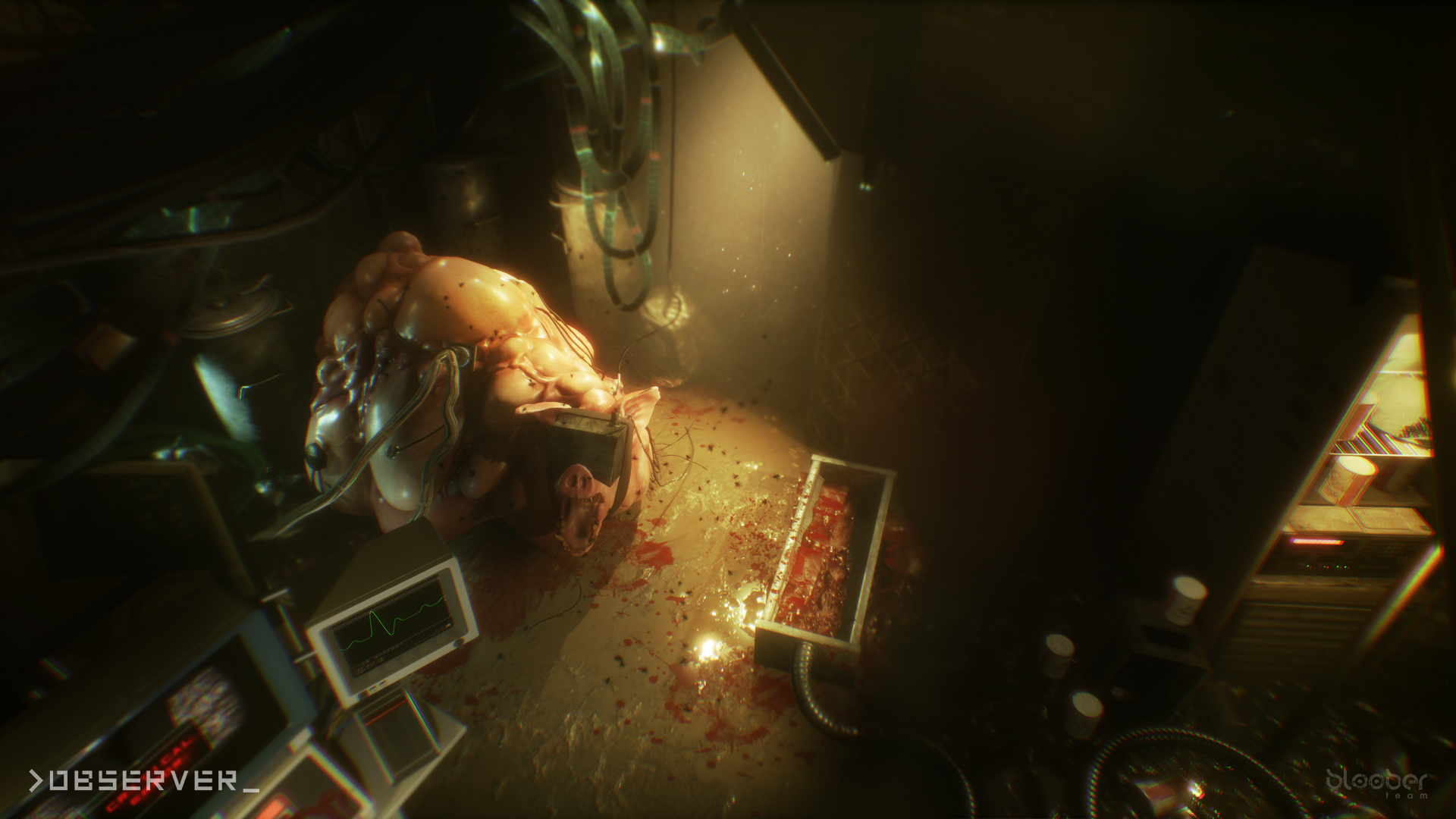
So, what about the gameplay then?
Well, sadly, there isn’t really a whole lot of gameplay to talk about. Despite looking like a grim cyberpunk-noir on the surface, Observer isn’t here to offer any kind of investigative experience; crime scenes are made up of only one or two simple clues and there aren’t any deduction or interrogation mechanics to speak of either. All you’re asked to do is walk from room to room, flicking between Lazarski’s three vision modes -bio scan, electro-magnetic and night vision- to highlight a few bloodstains or bits of equipment that are in plain view, and scan them to progress the plot. It’s a linear affair in more ways than one, as you achingly walk Lazarski through both endless corridors of the tenement building and straight line crime scenes.
So if Observer stars a detective but isn’t a detective game – then what is it? A pretty effective psychological horror/thriller, to tell you the truth. Using his Dream Eater technology to delve into the memories of his victims, Lazarski is subjected to some surreal and disturbing imagery, often overlapping his own memories with those of the deceased. The more you use the tool, the more the Observer loses his grip on reality, and it soon becomes difficult to trust Lazarski as a reliable narrator at all. These scenes really twist the level design to the point that it’s difficult to ever understand where you’re going – just like in a dream, the scenery and mood can change in the blink of an eye, and you’re constantly kept on edge by the grisly memories you’re forced to explore. The random flickering of images reminded me of the precognition in Minority Report (2002), where meaning and metaphor are seemingly sprinkled throughout, though I’ll openly admit that I feel like I missed much of the meaning.
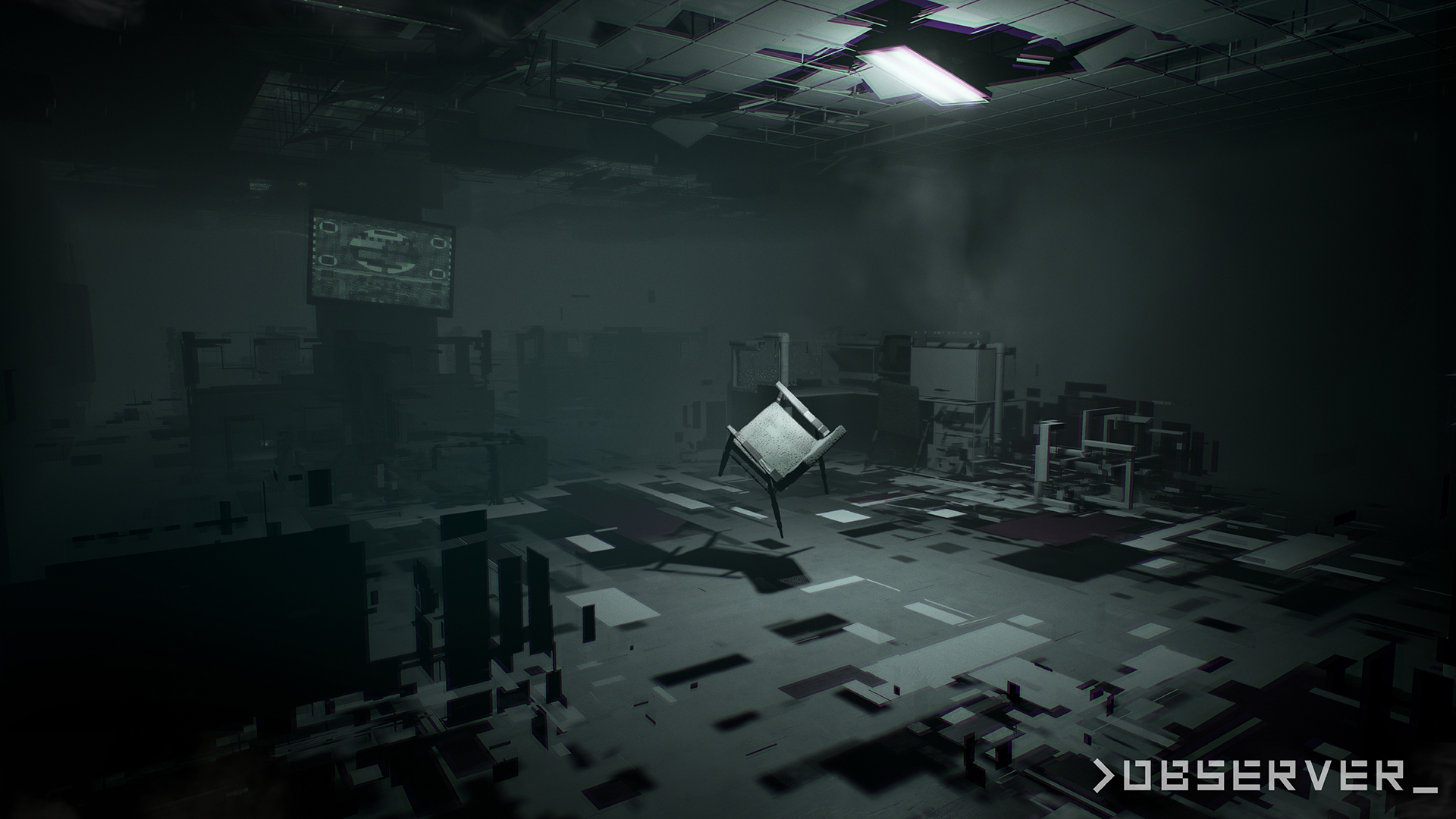
Later on in the game, Lazarski finds himself pursued by a huge cyborg creature, and you’ll have to sneak through various sections to avoid detection, else he be snatched up and mauled to death. But while the visage of this hulking monstrosity certainly helps to build the tension, I didn’t care for the stealth elements at all. In a game that’s already slow going, crouch-walking your way through these scenes is incredibly tedious, and, since you’ll find yourself being caught more often than not, the repetition of replaying these few minutes over and again is painful.
Adding to the pain were the several crashes I experienced when playing Observer, all of which seemingly revolved around levels unexpectedly unloading around Lazarski before I had fully made my way into a new area. This either left me soft-locked to fall into inky blackness forever more, or booted me back to the Switch main menu with a bump. I can generally forgive a few hiccups whilst I’m playing a game, but having to reboot part way through some intense scenes really killed the moment for me, and ultimately hurt my immersion in what was going on.
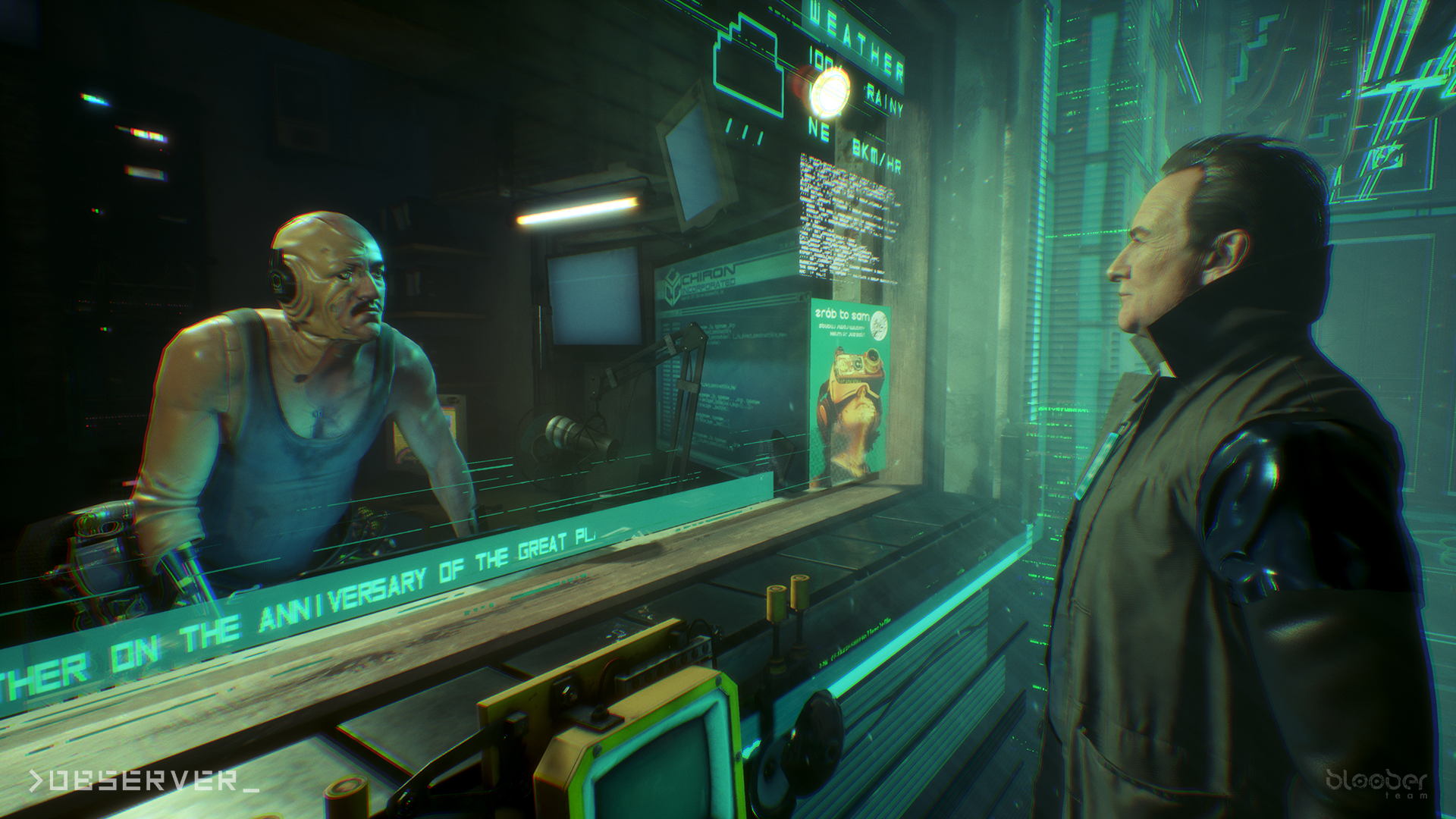
Ending on a higher note, helping to emphasise the atmospheric environments and the nightmarish dream sequences is some accomplished sound design that links up the themes of Observer incredibly well. Slow rhythmic tones run beneath harsh digital scratches, effectively melding the deep horror unease with more industrial sounds that are synonymous with the cybernetic styling and grimy visuals. The Dream Eater scenes can often be quite different though, as unearthly synths waver in and out of the score, underpinning the sombre and haunting visuals you encounter, along with deep, booming drums, twinkling chimes and tribal chanting that introduces a level of quiet mysticism too. Not to overlook the rapidfire dial-up modem screeches that work to utterly terrify you when those dreams start to turn into nightmares – as far as cybernetic-horror goes, Bloober Team couldn’t have done a much better job.
All told, Observer showcases the quintessential cyberpunk world, offering a bleak glance at a future that oozes distrust, oil, and injustice from every pore. The visuals, even on the Switch, are impressive, and portray a world so dingy that it’s borderline uncomfortable. Creeping through the jumbled mind of Dan Lazarski (Hauer) is oftentimes legitimately troubling, but despite the effective styling and a well written score, the experience is severely hampered by sluggish controls, unclear storytelling and an almost complete lack of gameplay.
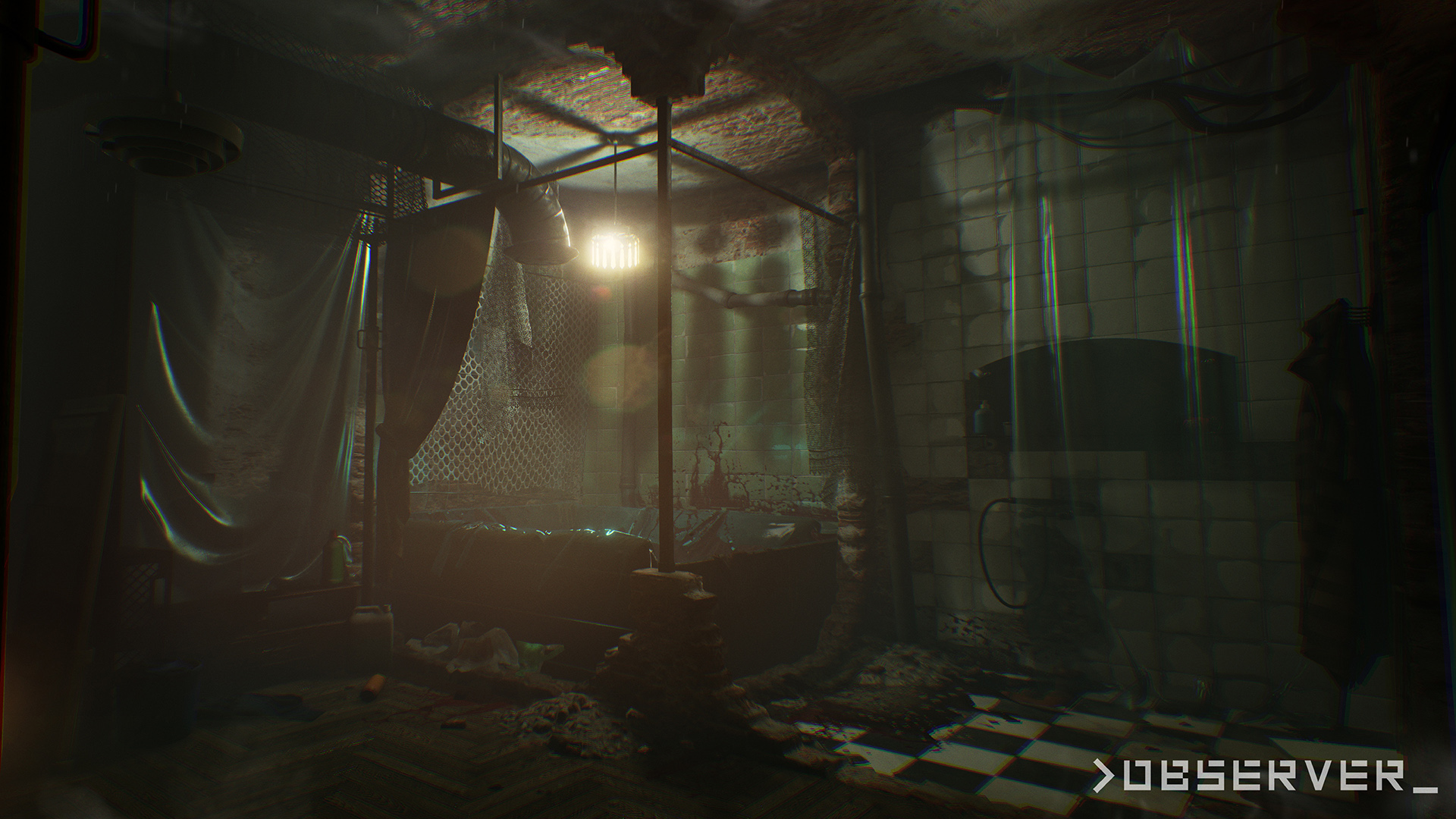
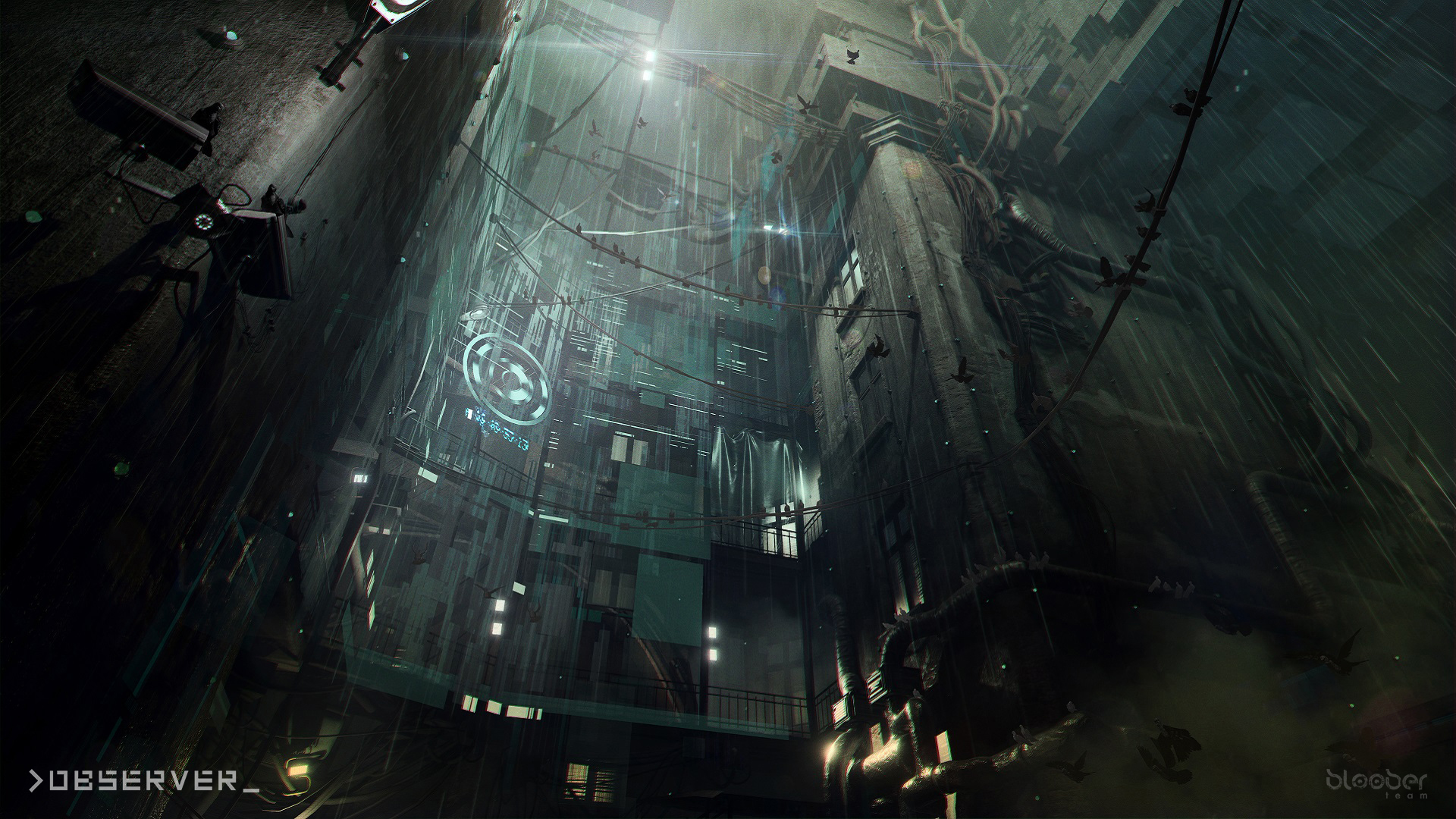
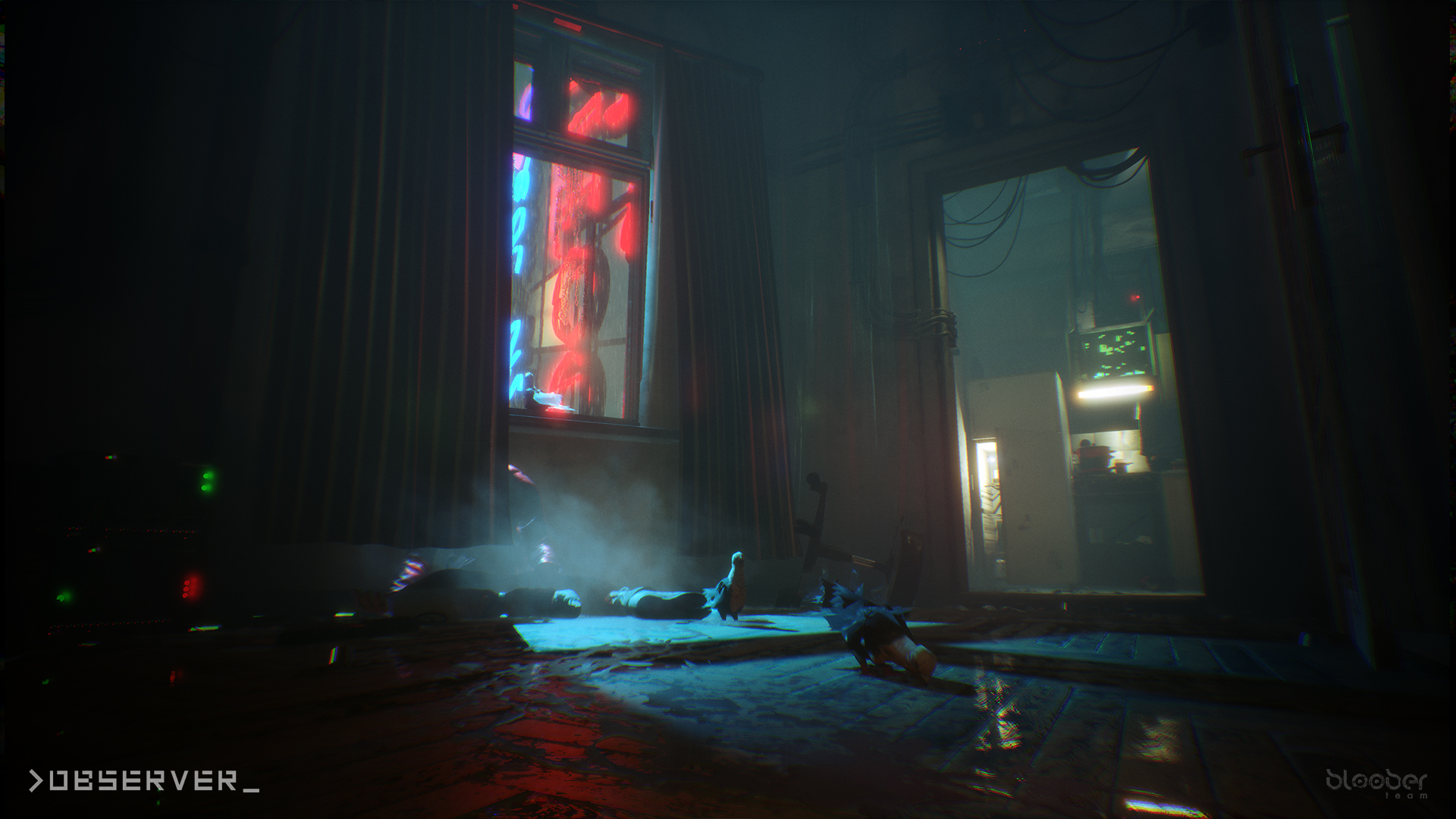
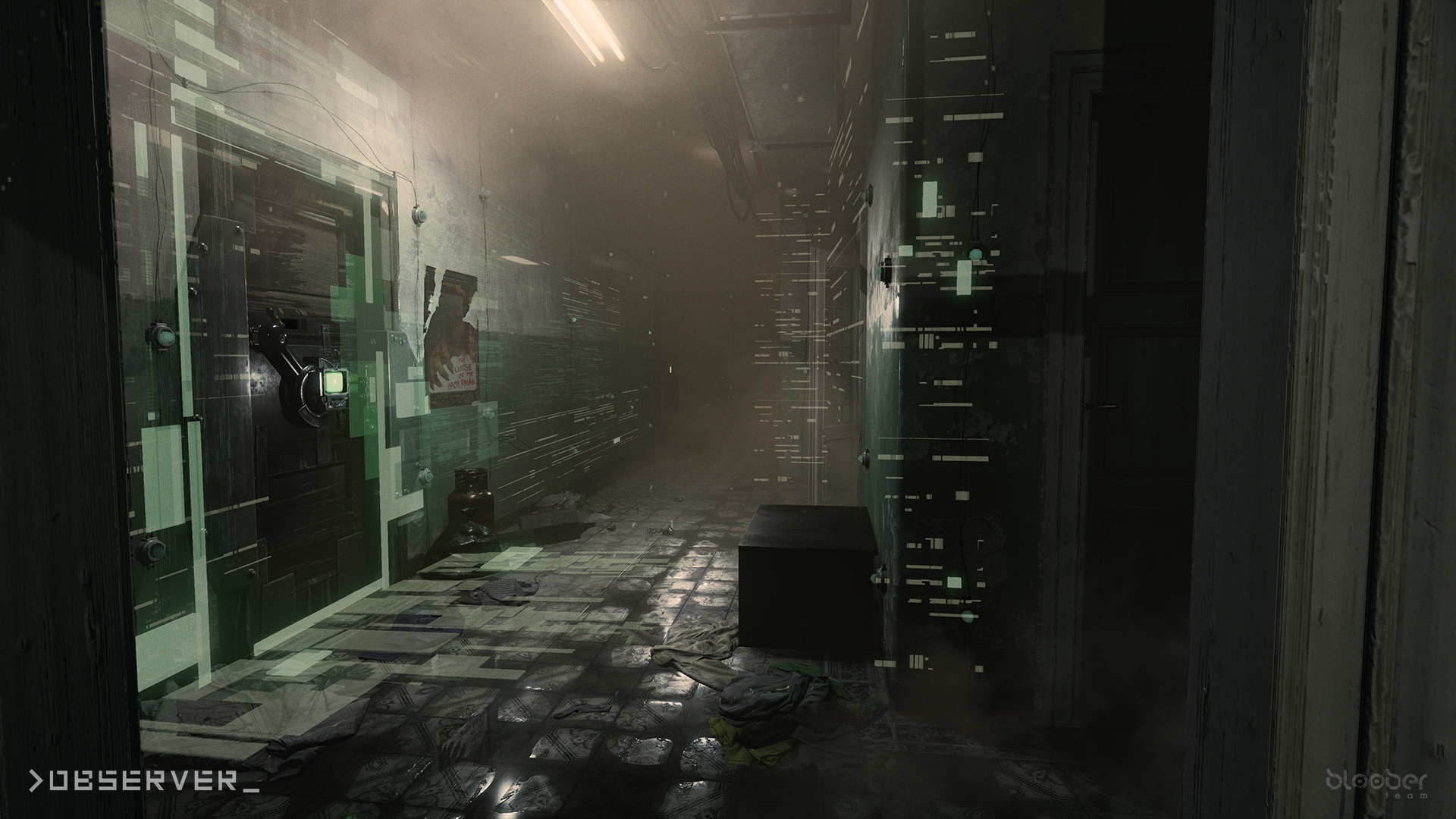
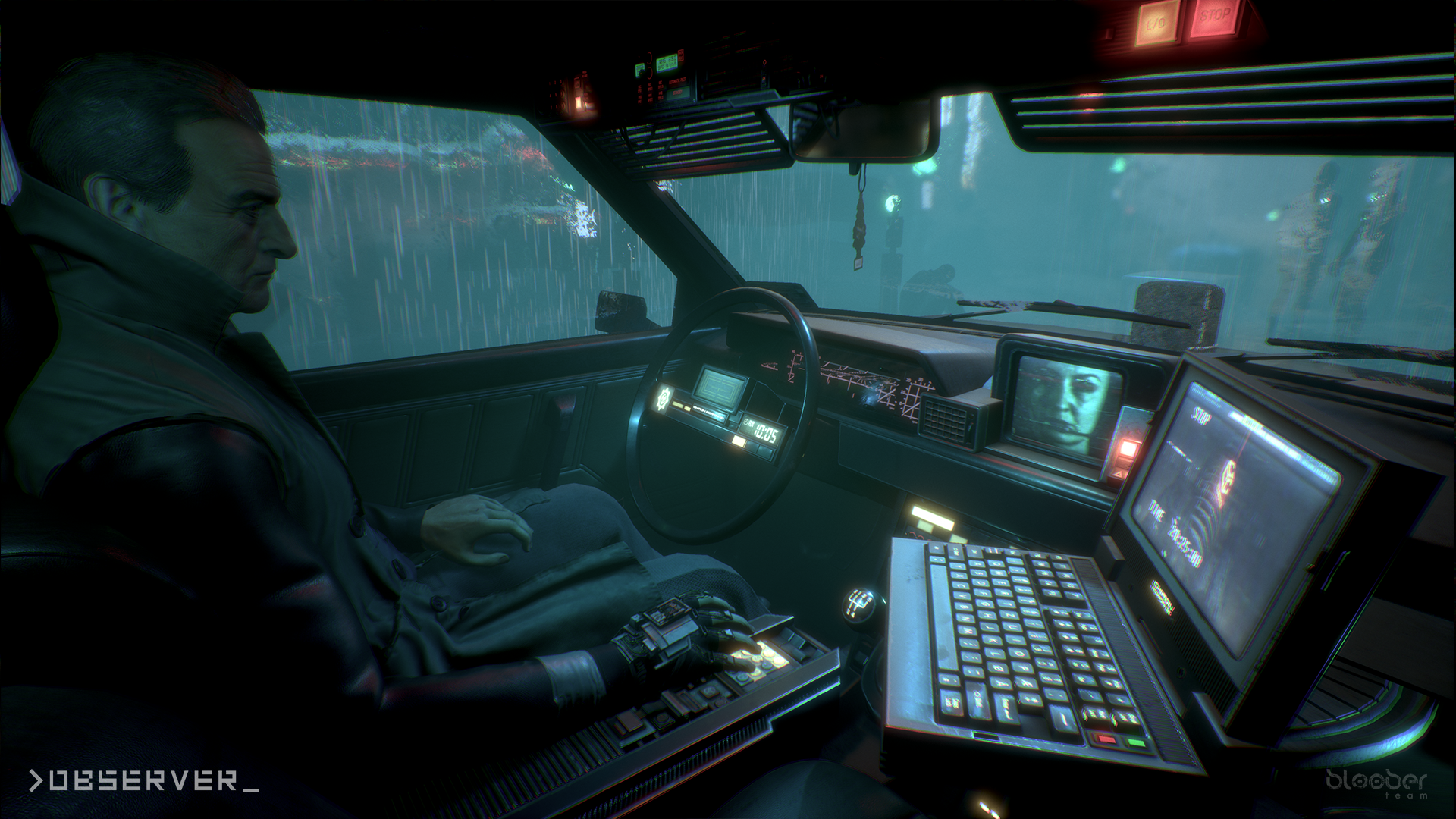
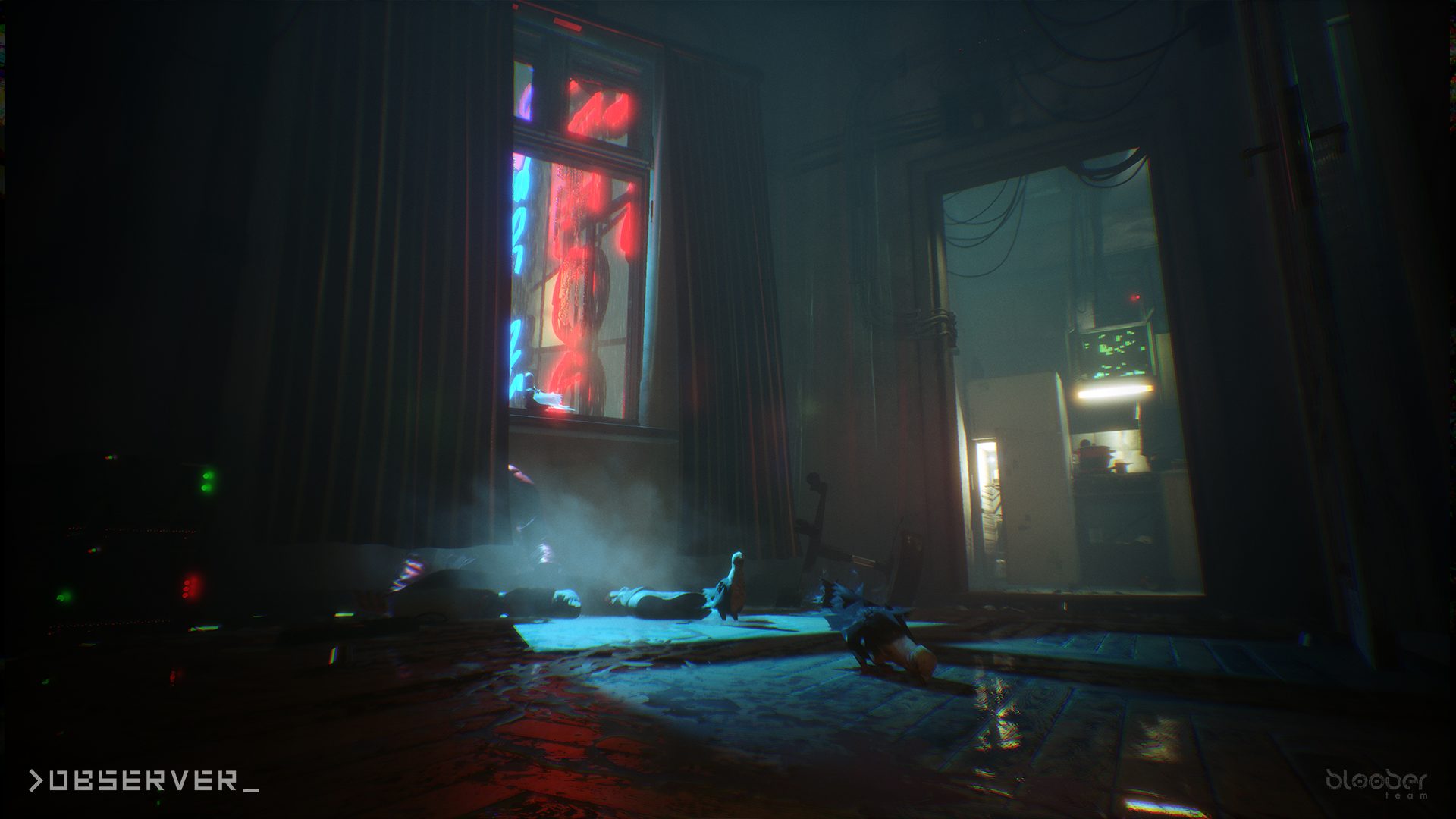
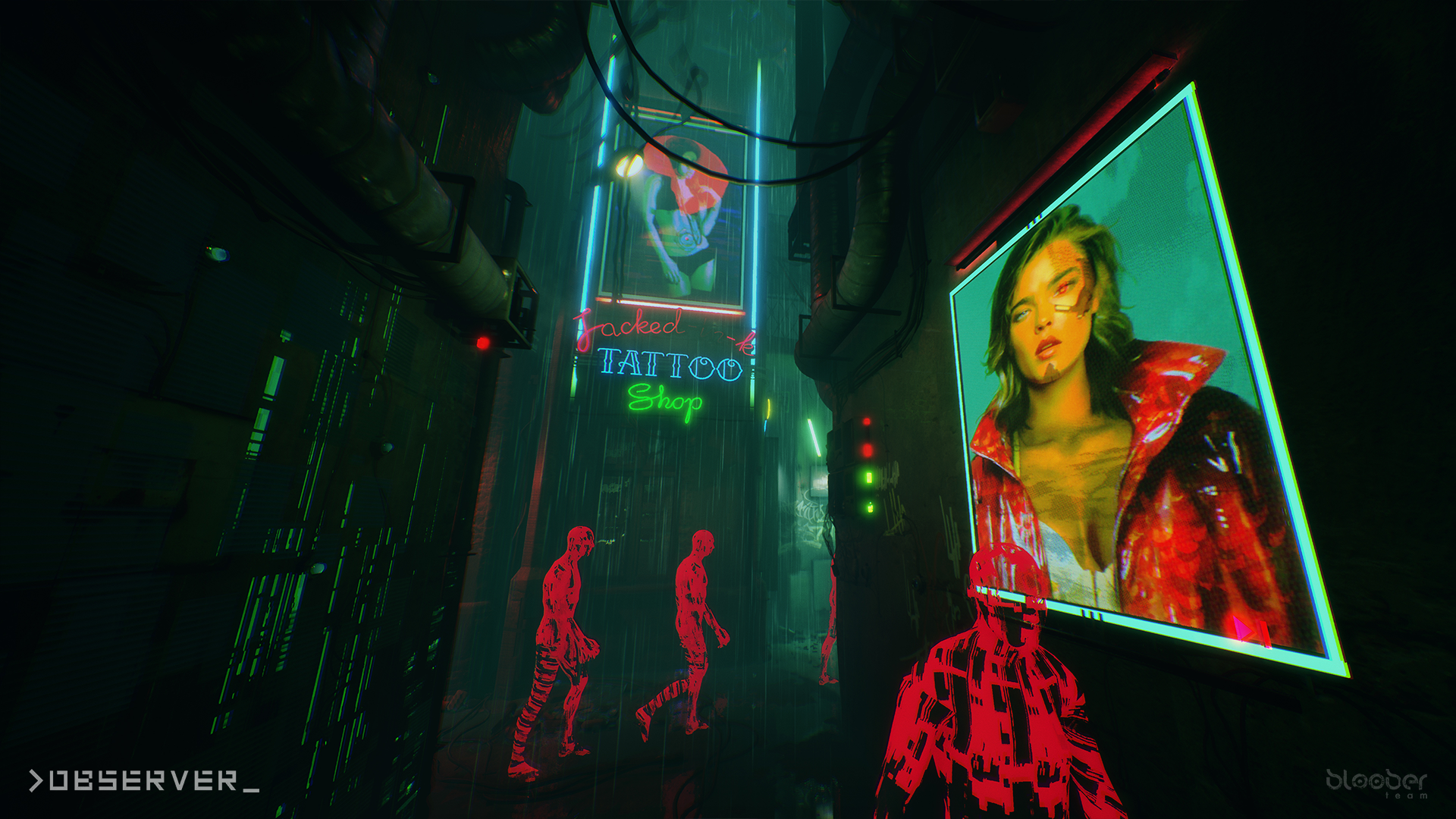
Thanks for taking the time to read our review. If you’d like to support us further, please consider buying us a coffee!



